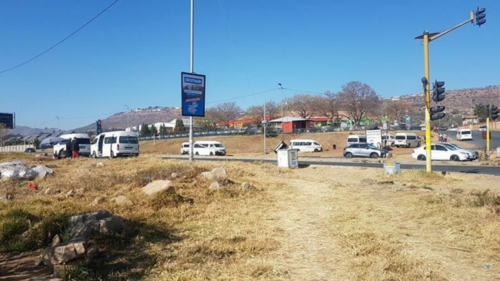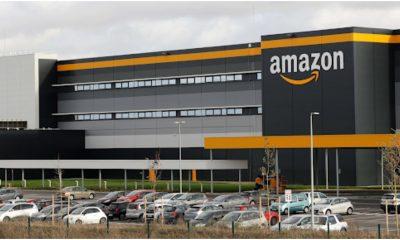News
Informal Taxi Ranks and School Transporters Under Parking Scrutiny

Efficient transportation is essential for economic growth and involves moving current and future financial contributors. However, transportation management requires careful attention to overhead costs, including mileage and fuel consumption. In suburban areas, one common issue is transporters parking at commuter pick-up points, leading to frustration among residents.
Also Read: Italian Community Joins Preservation Efforts for Cullinan POW Camp
In the northern part of Roodepoort, numerous open areas have transformed into small communities. These sites are used by drivers, informal traders and individuals seeking daily opportunities. Residents have expressed concerns about issues such as littering, loitering, poor hygiene, and violating by-laws by those frequenting these informal taxi ranks. Some residents also criticize authorities for disregarding these infringements.
Hendrik Potgieter Road, a key economic corridor, has several areas that draw the ire of motorists. One problematic location is the rank outside shopping centres near the Christiaan de Wet Road bridge, a persistent issue. Although the mall on the upper slope initially designated an area for taxi operations, drivers chose to use the more convenient verge instead.
Two other sites in the area have been growing as places of employment, further exacerbating the problem. The intersection of Doreen, Peter, and Hendrik Potgieter roads has minibuses on each corner, and the verge near Johan Road has seen steady expansion. Despite the temporary isolation of the Johan Road site due to a bridge reconstruction project, the Doreen Road intersection remains a hotspot.
Competition between taxi associations, such as Faraday and Dorljota, operating on Hendrik Potgieter Road, has been tense. At the Doreen intersection, Dorljota taxis operate from one side below the petrol station and trailer hire, while Faraday taxis park on the opposite side. Residents have raised concerns about public urination, increased litter, alleged reckless driving, and using the verge as a sorting area for waste pickers.
Itumeleng Chambata, a spokesperson for the Dorljota Taxi Association, has expressed the organisation’s desire to establish a formal site at the intersection. He emphasised that government support needs to be improved, leaving them with no option but to remain at this crucial intersection on their route. Chambata acknowledged residents’ complaints and vowed to remind drivers and commuters to dispose of litter properly and use nearby facilities.
The WRAP Residents Association has been pressuring relevant entities to address the situation. They have called for a constructive meeting among all stakeholders to discuss and resolve the ongoing issues, highlighting the absence of critical infrastructure for water, sewerage, parking, and by-law enforcement.
In addition to taxi-related challenges, the field alongside Jim Fouche Road near Landhuis Street serves as a drop-off and collection point for a nursery school’s transporters. These transporters claim to operate independently and without government contracts. Informal traders often accompany them to cater to customers’ needs, including food, refreshments, and other goods. This activity has raised concerns among residents, particularly about disturbances during nighttime.
The Johannesburg Metropolitan Police Department (JMPD) has outlined the relevant by-laws governing parking in open spaces. It states that vehicles, except bicycles, should not be driven, drawn, or propelled within public open spaces except during specified times and on designated roads or pathways provided by the council. Parking is only permitted in designated areas or other approved areas.
Regarding informal traders, the CoJ by-laws prohibit trading in places likely to obstruct vehicular traffic or within five meters of an intersection.
As for rough sleepers, the by-laws dictate that no one should camp or reside in public open spaces, and fires should only be made in council-provided facilities.
Addressing these issues requires collaborating with authorities, transporters, traders, and residents to find sustainable solutions that benefit the entire community.
Source: Swelling informal taxi ranks and school transporters taking heat for parking indiscretions
Also Read:
Follow us on Google News
Photo: Supplied by Roodepoort Record






















